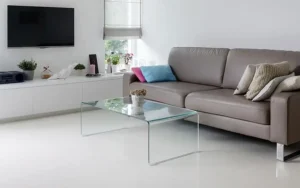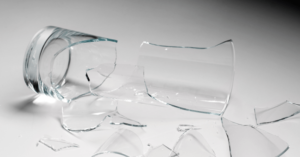We all know that sunglasses are important for protecting our eyes from harmful UV rays. But what about blue light? Is it really necessary to shield our eyes from this type of light, too?
As it turns out, blue light glasses are becoming increasingly popular, as more and more of us spend time looking at screens (which emit blue light). While there is still some debate over whether or not blue light is harmful to our eyes, many people swear by their blue light glasses, claiming
Introduction
Most people are familiar with the harmful effects of ultraviolet (UV) radiation from the sun, but many are not aware of the dangers of blue light. Blue light is a type of high-energy visible (HEV) light that is emitted by the sun, as well as by digital screens like TVs, computers, and phone screens.
While UV radiation is known to cause skin cancer, blue light has been linked to a number of other health problems, including:
-Eye strain and fatigue
-Headaches
-Difficulty sleeping
Because of these potential risks, many people are turning to blue light glasses as a way to protect their eyes from harmful blue light exposure. But do these glasses actually work? And are they worth the investment?
What are blue light glasses?
Discovered in the early 1990s, blue light is a type of high-energy visible (HEV) light that’s emitted by digital screens like computers, TVs, and smartphones. Although we’ve only recently become aware of its effects, blue light exposure has actually increased exponentially in recent years due to the growing popularity of electronic devices.
While some blue light exposure is inevitable, too much blue light can be harmful to our health. Studies have linked blue light exposure to a variety of problems including digital eye strain, difficulty sleeping, and an increased risk for macular degeneration — a serious eye condition that can lead to blindness.
To protect against the harmful effects of blue light, many people have started wearing so-called “blue light glasses.” These special glasses are designed to filter out blue light and reduce its negative impact on our eyes and our sleep.
How do blue light glasses work?
Blue light glasses work by filtering out the blue light that is emitted from screens. Blue light glasses have a special coating that helps to reflect the blue light away from your eyes. This helps to reduce the amount of blue light that enters your eyes and helps to reduce eye strain.
Are blue light glasses effective?
There is no scientific evidence to suggest that blue light glasses are effective in protecting your eyes from the harmful effects of blue light. Some manufacturers of blue light glasses claim that they can help relieve digital eye strain, but there is no scientific evidence to support this claim.
Digital eye strain is a condition that can cause symptoms like headaches, blurred vision, and neck and shoulder pain. It is caused by staring at digital screens for extended periods of time. While blue light glasses will not protect your eyes from digital eye strain, there are other things you can do to help relieve the symptoms, such as taking breaks from staring at screens and using the 20-20-20 rule.
The 20-20-20 rule is a good way to reduce digital eye strain. It involves taking a 20 second break every 20 minutes to look at something 20 feet away. This will help reduce eye fatigue and give your eyes a chance to rest.
The benefits of blue light glasses
There are many benefits to wearing blue light glasses, especially if you spend a lot of time looking at screens.
Blue light is a type of light that is emitted from screens, such as computers, tablets, and phones. This type of light can be harmful to our eyes because it can cause eye strain and fatigue. It can also disrupt our sleep patterns because it suppresses the production of melatonin, which is the hormone that makes us sleepy.
Wearing blue light glasses can help to protect our eyes from the harmful effects of blue light. They can also help to reduce eye strain and fatigue. And, because they allow less blue light to reach our eyes, they can help us to sleep better at night.
The drawbacks of blue light glasses
Despite the many benefits of blue light glasses, there are also a few drawbacks to consider. First, blue light glasses can be expensive. If you wear prescription glasses, you may need to buy a separate pair of blue light glasses or get your lenses coated with a blue light-blocking coating. Second, blue light glasses can cause some people to experience headaches or eyestrain. If this occurs, you may need to take a break from using your blue light glasses or adjust the intensity of the blue light filter. Finally, blue light glasses may make it more difficult to see in low-light conditions such as at night. If you plan on wearing your blue light glasses while driving, be sure to test them out in low-light conditions before hitting the road.
How to choose the right blue light glasses
There are a few things you should look for when choosing the right pair of blue light glasses:
-Filter type: Make sure the glasses you choose have a blue light filter that blocks at least 50% of blue light.
-Transparency: Some filters can distort colors or make things appear blurry. If you choose glasses with a filter, make sure they have high transparency so you can see clearly.
-Fit: You want your blue light glasses to fit snugly and be comfortable to wear, so make sure to try them on before you buy.
Once you’ve found the right pair of blue light glasses, all that’s left to do is enjoy the benefits! Wearing blue light glasses can help reduce eye strain, improve sleep quality, and even boost your mood.
Conclusion
Are blue light glasses good for sun protection? The short answer is yes, blue light glasses can help protect your eyes from the harmful effects of ultraviolet (UV) rays. But it’s important to keep in mind that blue light glasses alone will not provide complete protection from the sun. You’ll still need to wear sunglasses that offer UV protection.












